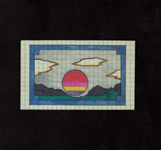|
|
 |
Dusted Reviews
Artist: Keith Rowe and John Tilbury Album: E.E. Tension and Circumstance Label: Potlatch Review date: Feb. 2, 2012 |

|
|
|
 |
The circumstances surrounding the making of this record were certainly fraught with tension. Guitarist Keith Rowe and pianist John Tilbury have been acquainted since the 1960s, and shared membership in the improv ensemble AMM from 1980 to 2004, when Rowe left over a rupture of trust instigated by percussionist Eddie Prévost’s critiques of his playing in the book Minute Particulars. In 2002, Rowe and Tilbury made their first record as a unit, Duos For Doris. It is named for Tilbury’s mother, who died the same week as the session, and the sublime attunement of their playing on that day makes it a pinnacle in an already lofty body of work. It would also have represented that corpus’s terminus if the two men hadn’t started talking again after Tilbury placed a call of sympathy upon the passing of Rowe’s mother, Eileen Elizabeth Charters-Rowe, in 2009. They played together again in Paris on Dec. 17 of the following year; the elegiac circumstances of that set are reinforced on E.E. Tension and Circumstance by the cover art: an image made by Rowe’s late brother, Milford.
Back when Rowe was still in AMM, I sent him a text of an interview I had done with the trio, asking for corrections. He did not respond until after the article was complete. When he did, he explained that he liked the idea of Chinese Whispers, where you say something into someone else’s ear, they pass it misremembered to someone else, and so on; apparently what you do with what you hear can be as valid as what was originally said. This is born out by the sui generis music that Rowe has created by applying his readings of painters’ works (including Cy Twombly, Jackson Pollock, and Carravaggio) to the instrument of Charlie Christian and Chuck Berry. He’s put it on the table, played a radio through its pick-ups, manipulated it with a workbench full of tools and toys, and routed its signals through a myriad of electronics. Each choice of implement and each action he takes has an aesthetic reason behind it; he may improvise, but his improvisation comes from deep consideration about what sounds might mean, either on their own or in juxtaposition with others. But he’s not prone to lengthy explication of his work prior to the fact or in concert; he whispers it to you, and then it’s your job to figure out what to make of it.
At this point it’s fair to say that Rowe is not really a guitarist, but a philosopher-painter-musician who happens to use a guitar. Certainly you won’t hear much that sounds remotely guitarlike, even in the post-Sonic Youth/My Bloody Valentine era, on E.E. Tension And Circumstance. There are two notes of identifiable guitar sound a quarter-hour in, perhaps included just to remind us that there is one on the table; the effect is like the brush-stroke that reminds you that you’re looking at a painting, not a picture. Otherwise Rowe contributes a lot of continuous sound, but don’t call it drone; rather, he offers a fluctuating stream of subliminal whistles, grainy hisses, and crackling static. It’s never merely backdrop. He also provides discrete sounds, some quite harsh, which sometimes fit right into whatever Tilbury is playing and sometimes contradict it like a rusty piece of machinery dropped into an award-winning rose garden.
Which isn’t to suggest that Tilbury’s playing is the sonic equivalent of a bunch of lovely flowers. He came to improv from classical music, and he has an exquisite touch on the keys; a life-long engagement with the work of Morton Feldman has refined his awareness of what one note means within the context of a grand whole to a degree of reality-puncturing sharpness. But he makes full use of the piano’s resources, working inside and outside the instrument, and some of this performance’s most spellbinding moments come when he brushes his fingers over the keys so lightly that they don’t sound notes.
While there is nothing tentative about this music, it is full of patient waiting and uncluttered space. Tilbury and Rowe enter into a zone of time and sound where different elements appear, develop and disappear in ways that seem unfailingly right. At points, these sounds impart a sense of stillness like a Zen garden, or of contrasting motions like the flow of a slow river under fast-flying clouds. Elsewhere one hears a few lonely notes and some rough electrical distortion, each sound crumbling in the other’s presence. It’s tempting to read tragedy and loss into this music, especially when the play of Tilbury’s austere phrases across Rowe’s elongated sounds so brokenly beautiful. But that could also be this listener’s projection, based on either my knowledge of the players’ personal history or what I associate with lonely piano notes. There go those whispers.
By Bill Meyer
|







